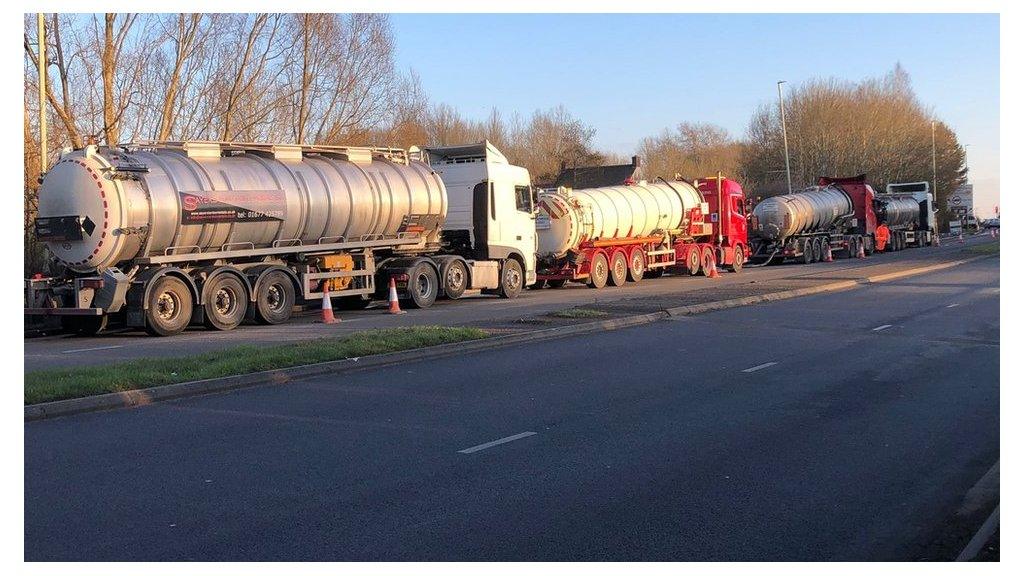Man contracts sepsis after paddle in River Kennet
- Published
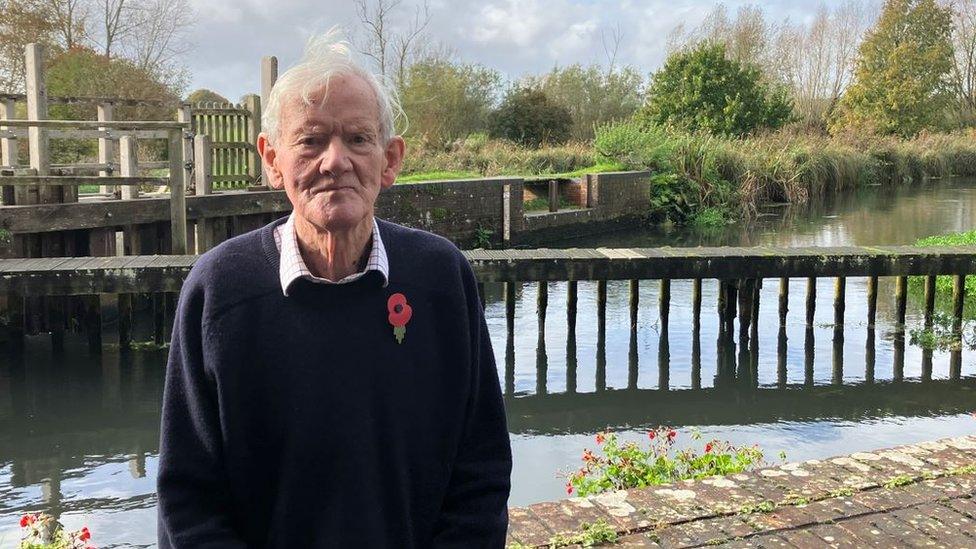
Gordon Pepper lives in a former mill next to the River Kennet
A man says he was left fighting for his life after having a paddle in the River Kennet.
Gordon Pepper, who lives in Wiltshire, was in the sepsis ward at hospital 48 hours after his dip.
The water quality of the Kennet has been under scrutiny by campaign groups because of untreated sewage being dumped there.
Thames Water said pollutants could get into rivers in other ways and it was investing in sewage treatment works.
Mr Pepper has lived in Mildenhall, near Marlborough, in the Kennet valley for 11 years.
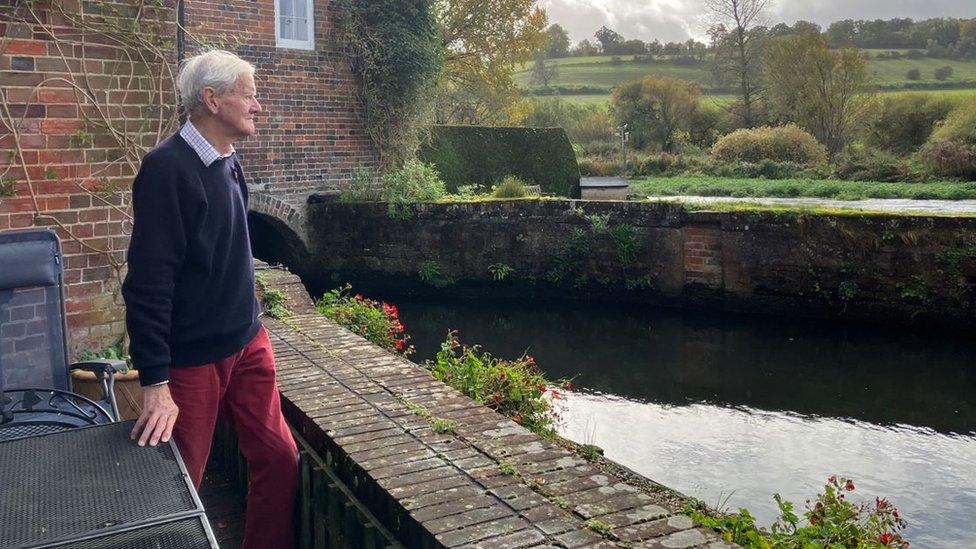
Mr Pepper's right leg became swollen and he was rushed to Great Western Hospital in Swindon
Although he can not prove it, Mr Pepper believes his condition was a result of a sewage treatment works upstream from where he paddled in the water.
He grazed his foot on a piece of gravel on the river bed and the next day "woke up with a dippy tummy".
"The vomiting got really serious and suddenly I had the shakes," he said.
Mr Pepper's right leg became swollen and he was rushed to Great Western Hospital in Swindon.
"I get confused because, the next thing I remember was waking up the next morning in the sepsis ward, and I didn't know what was happening," he said.
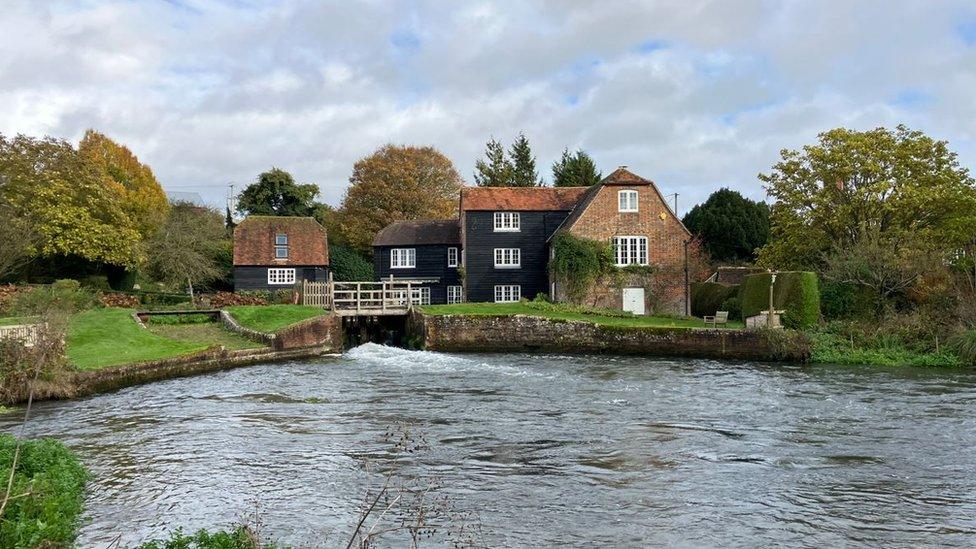
Campaign group Action for the River Kennet have long advocated for cleaner water
The River Kennet is one of Wiltshire's rare chalk streams and has long been in the spotlight because of sewage pollution.
Thames Water, which manages the sewage treatment works on the river, was one of 12 water companies which was forced to issue refunds to customers for missing key pollution targets in September.
When questioned about Mr Pepper's case of sepsis, a Thames Water spokesperson said: "It is important to remember, pollutants, animal faeces from livestock and wildlife, along with run off from farms and roads can also contribute to hazards found in watercourses.
"Taking action to improve the health of rivers is a key focus for us and we have planned investment in our sewage treatment works across the Thames Valley."
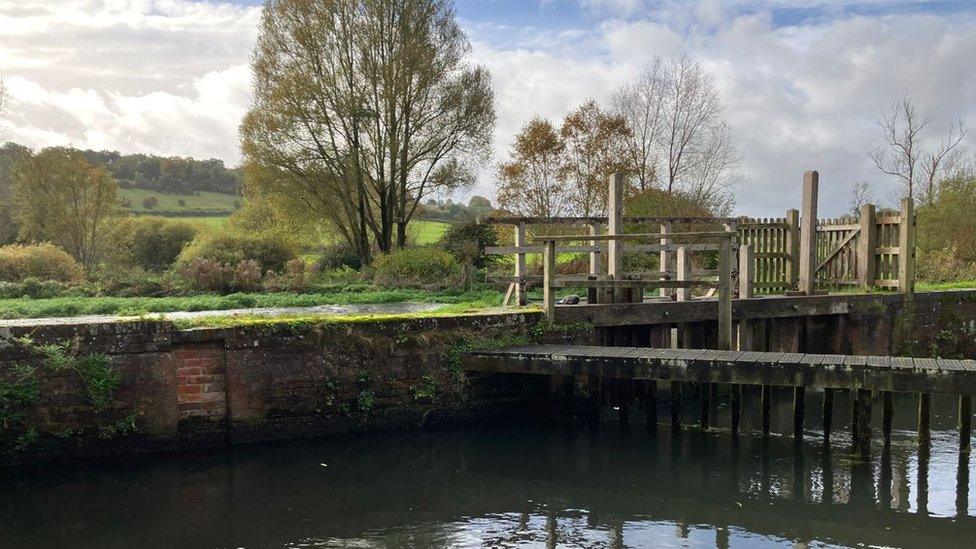
Thames Water plans to spend billions of pounds upgrading its infrastructure over the coming years
In September, the Office for Environmental Protection (OEP) announced the Department for Environment, Food and Rural Affairs, the Environment Agency and Ofwat may have broken the law over how they regulated sewage releases.
The regulators have until 7 November to say if they agree with the OEP's view, but the response will not be made public.
The government has already said it does not agree with the "initial interpretations". A final decision by the OEP could be made later this year.

Follow BBC West on Facebook, external, X, external and Instagram, external. Send your story ideas to: bristol@bbc.co.uk , external
Related topics
- Published21 June 2023

- Published26 September 2023

- Published3 March 2023
